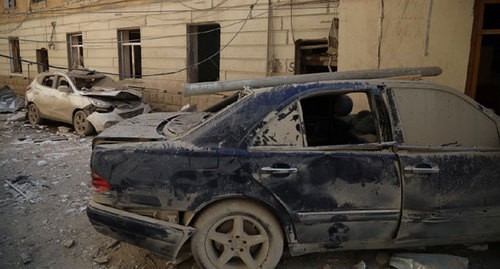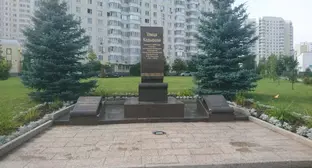
13 October 2020, 11:26
Political analysts treat ceasefire agreement in Karabakh conflict zone as technical
The ceasefire agreement concluded in Moscow in the Karabakh conflict zone is rather technical; it is too early to talk about the conflict settlement, the political analysts in Moscow, Baku and Yerevan, interviewed by the "Caucasian Knot" believe.
The "Caucasian Knot" has reported that the fighting in the conflict zone began on September 27, and at midday on October 10, a ceasefire agreement in the conflict zone entered into force. However, the parties continued accusing each other of violating the ceasefire.
For more news on the Karabakh conflict, see: 'Karabakh: a Good War Or a Bad Peace' section.
"Everyone understands quite well that the time for a real truce has not yet come," said Sergey Markov, a Russian political analyst. "In fact, this is a fairly technical ceasefire, during which the parties, apparently, still tried to exchange some, possibly wounded, prisoners of war, and casualties' bodies.
According to Mr Markov, most likely, there will be a very short pause in hostilities. "Both sides very much believe in their military capabilities. Armenia then, 30 years ago, turned out to be stronger. And it believes that this power has remained with it. Azerbaijan has invested a lot in the restoration of its armed forces for the last 25 years; and it believes that it has become stronger and can do a lot by military means. But until the parties understand what the real balance of military forces is, they won't be ready for real negotiations," he has stated.
Erkin Gadirli, an Azerbaijani MP and a member of the political council of the "Republican Alternative" (ReAl) Party, doubts a long-term truce. "Achieving a long-term termination regime doesn't seem realistic. This has to do with systemic facts," he told the "Caucasian Knot" correspondent.
Tevan Pogosyan, a political analyst and Executive Director of the International Centre for Human Development, believes that until a humanitarian truce has been established, any substantive talks are out of question.
"Sooner or later, substantive talks will begin, which, from the viewpoint of the Armenian parties, are about the status of Artsakh (Nagorno-Karabakh) and its security issues. But for negotiations to begin, there must be due conditions in place, that is, the situation, when the parties' attention is not on the front, but on main issues. And Artsakh (Nagorno-Karabakh) should participate in the talks," Mr Pogosyan told the "Caucasian Knot" correspondent.
This article was originally published on the Russian page of 24/7 Internet agency ‘Caucasian Knot’ on October 13, 2020 at 04:02 am MSK. To access the full text of the article, click here.
Author: Rustam Djalilov, Faik Medzhid, Tigran Petrosyan Source: CK correspondents




